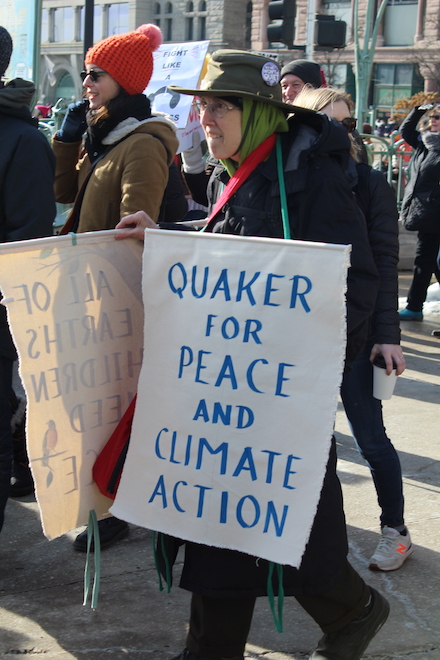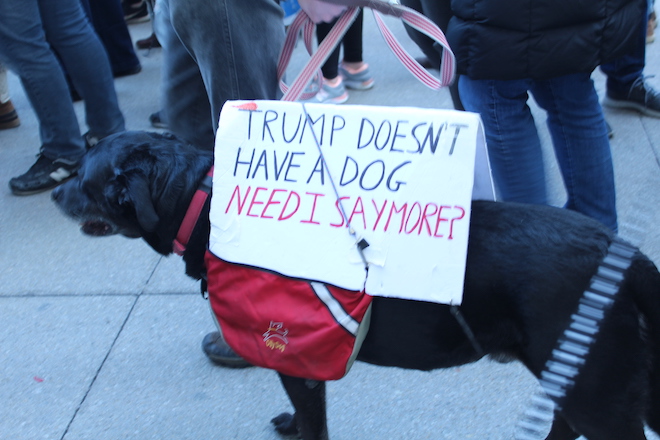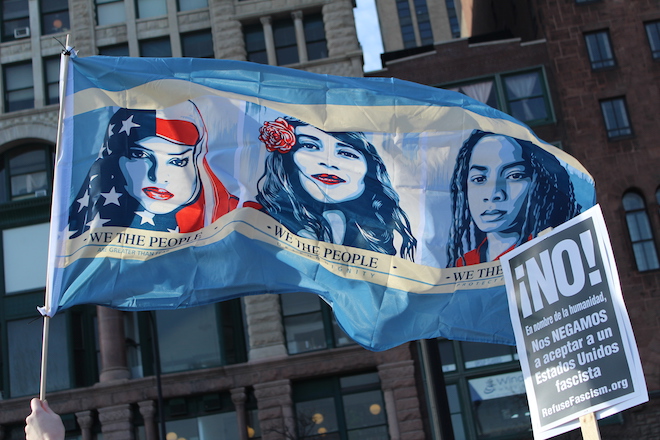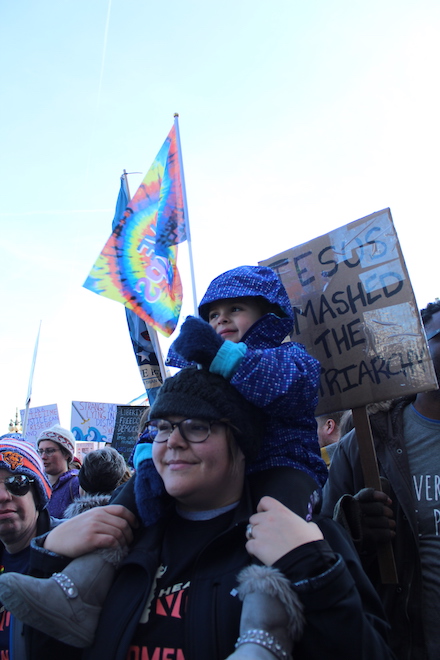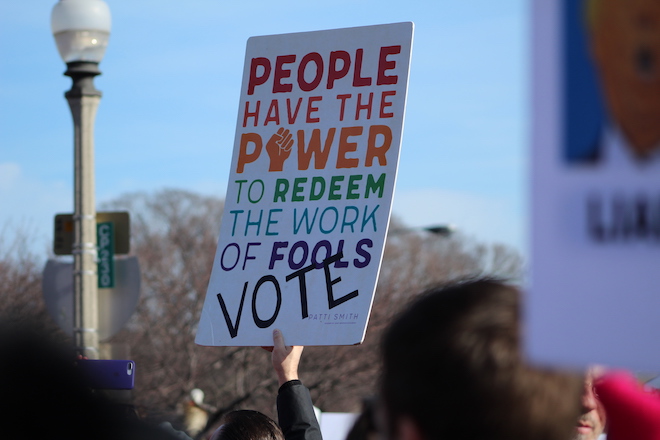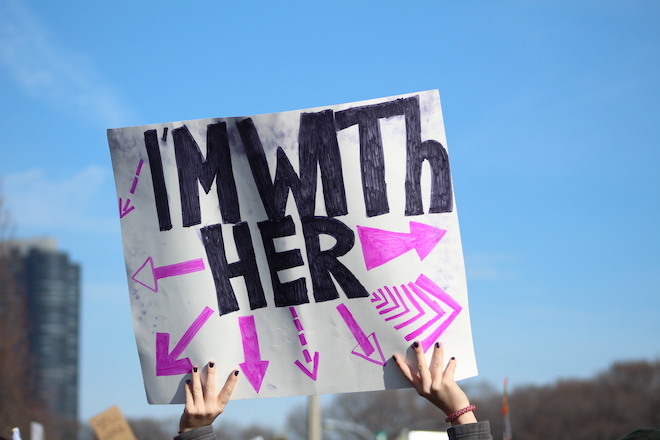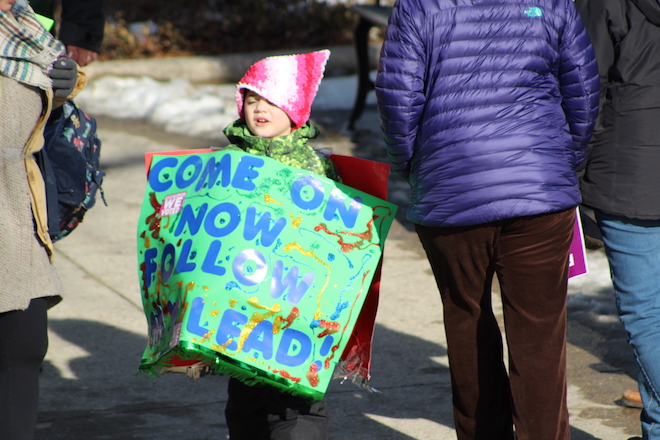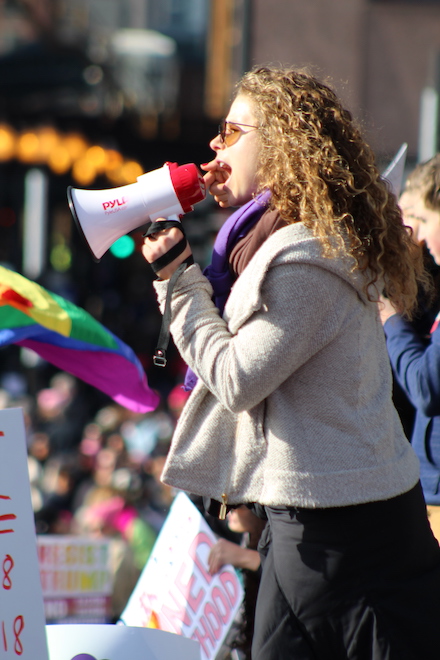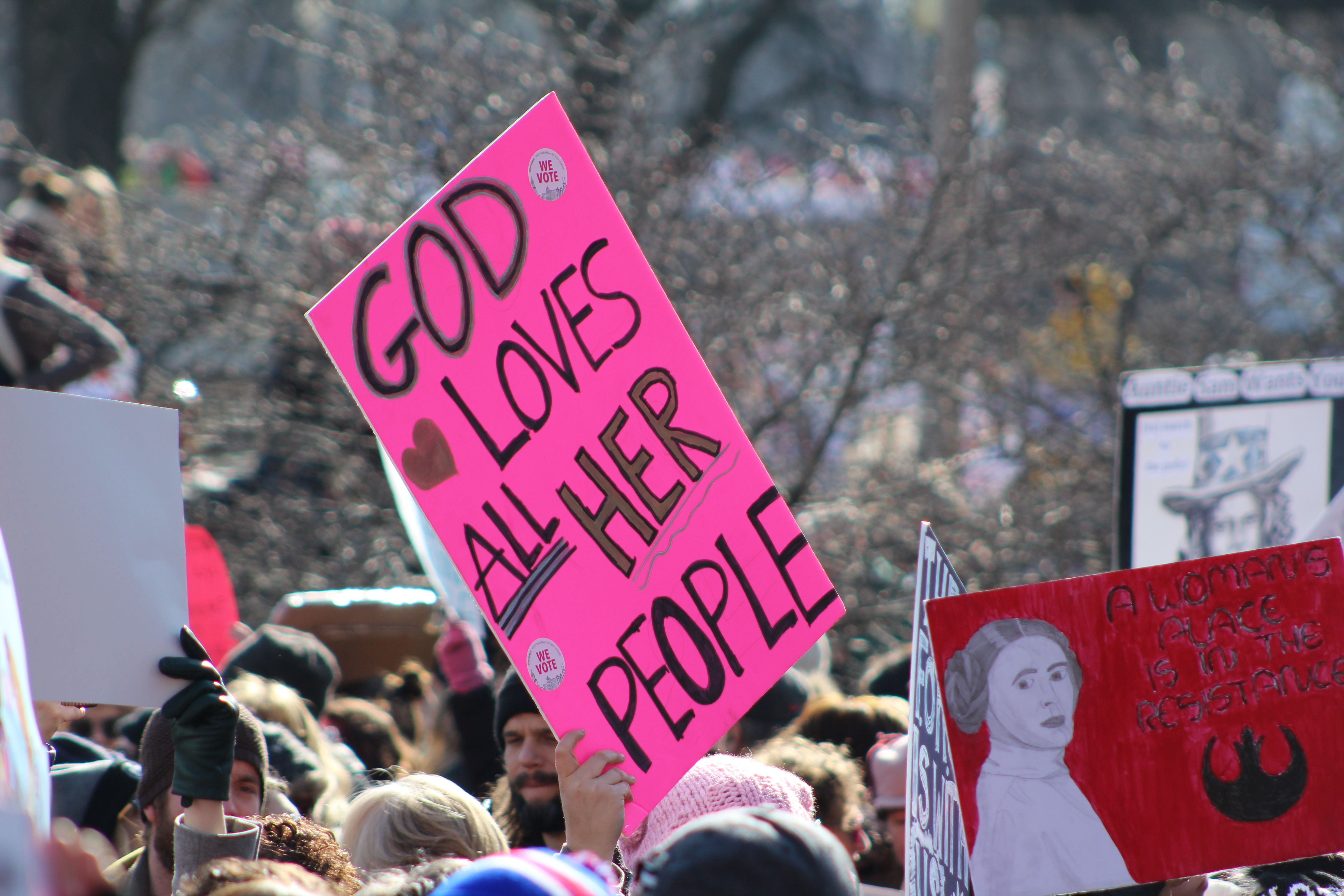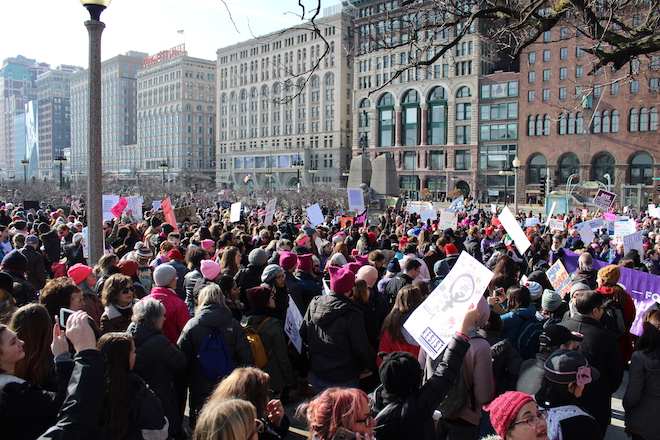In 2017, the Women’s March on Washington began as a Facebook event and became one of the largest single-day demonstrations in United States history. People mobilized around the country to show their discontent with the state of U.S. politics and human rights. This year, with midterm and local elections coming up, the Women’s March Chicago shifted its focus to the polls. An estimated 300,000 people gathered in Grant Park on Saturday for the second-annual Women’s March Chicago – outnumbering last year's estimates by about 50,000.
Speakers focused on electing women to positions of power at state and national levels.
“Seventy-nine women have signed up to run for governor this year,” said Quiana McKenzie, who spoke at the rally preceding the march. McKenzie is a regional campaign finance advisor for Emily’s List, a grassroots political organization that raises money to support pro-choice Democratic women candidates.
Known as “March to the Polls,” the Women’s March Chicago emphasized the importance of voter registration. Members of the League of Women Voters canvassed Grant Park, helping people register to vote.
“I think that more people need to be able to get to the polls and exercise their right to vote,” Evanston resident Merle Monroe said. Monroe, who works with Indivisible Evanston, speculates that low voter turnout in the last presidential election allowed Donald Trump to win.
Indivisible Evanston, a local chapter of the nonprofit The Indivisible Project, attended the march. Indivisible Evanston is a grassroots citizen action group that resists Trump’s agenda, according to the Indivisible Evanston Twitter page.
Members of the Northwestern community attended the march.
“I got buttons [from the Women’s Center] for myself and my whole family, who came with me today,” Weinberg freshman Christy Parzyszek said.
Parzyszek said that the Women’s March Chicago has made her consider local activism opportunities.
“Being here makes me want to be more involved and take more action on campus,” Parzyszek said.
